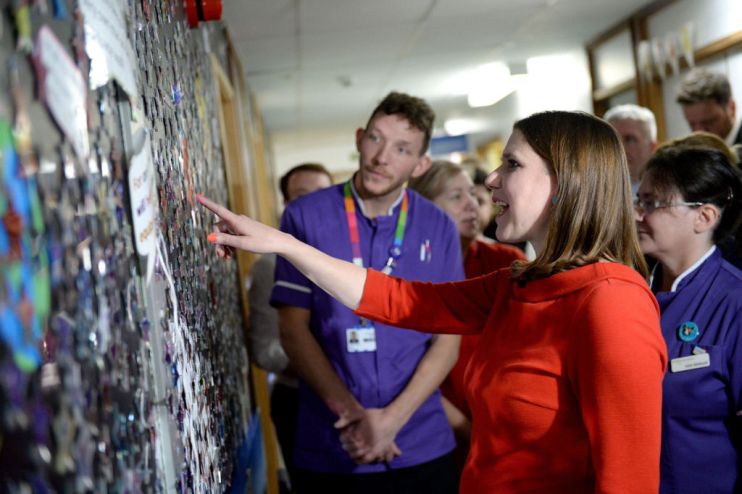General Election 2019: Liberal Democrats pitch party as ‘natural home of business’

The Liberal Democrats are pitching themselves as the “natural home of business” with a slew of policies due to be unveiled in the party manifesto that it claims will bolster the UK’s economy.
Warning of challenges including artificial intelligence, climate change and Brexit, the Lib Dems argue that the two main parties are backwards looking in their approach to business and the economy. But not all policies are unambiguously pro-business.
Read more: Lib Dem’s Gyimah suggests Labour rival was ‘part of cladding conversations’ over Grenfell
Among its key pledges are a boost to research and development funding to make the UK an “innovation-led economy”, as well as its skills wallet to help lifetime training.
The party – which is hoping to win seats in West London including Kensington, Putney and Chelsea & Fulham – will reform the country’s tax regime, pushing corporation tax back up to 20 per cent, abolishing the capital gains tax-free allowance in favour of taxing capital gains and salaries through a single allowance and scrap the marriage tax allowance.
A Lib Dem government would also scrap business rates, replacing it with a “commercial landowner levy” that would be based on land value rather than the entire capital value.
Jo Swinson’s party, which makes the case for “business as a force for good” says it will give staff in large companies the right to request shares, have staff representatives on remuneration committees or executive boards, extending the sceop of the public interest test on overseas takeovers and “binding and public votes” of shareholders on executive pay.
Read more: Liberal Democrats pledge commuter fare freeze
Increasing aviation duties for frequent flyers, to raise up to £5bn a year for investment in green technologies and higher spending on public services, are also among the Lib Dems’ plans.
The changes would be levied only on international flights and would be intended not to add to the costs of people who only “one or two international return flights per year”.
The party also plans to block any new runways in the UK, including expansions at Heathrow, Gatwick and Stansted, and the new airport in the Thames Estuary.
The party also wants to “strengthen the ability of unions to represent workers effectively in the modern economy”, and sets out a number of policies to tackle zero-hours contracts including setting a 20 per cent higher minimum wage “to compensate them for the uncertainty of fluctuating hours of work”. Staff will also be given the right to request a fixed-hours contract after 12 months on a zero-hours contract, which is “not to be unreasonably refused”.
Channelling the Liberal Democrats’ glory days in the Cameron-Clegg coalition, Swinson’s new manifesto also sets out plans to create a new government role – minister of well-being, and create a New Zealand-style “well-being budget” – that will go beyond the economic considerations of any policies.
“We are facing profound economic changes that demand new partnerships between government and business… However, neither Labour nor the Conservatives are capable of guiding the economy through these challenges,” the party’s manifesto, published today, will say.
Read more: Greg Hands in Chelsea & Fulham – vote Lib Dem, get Labour
“Both parties are reaching to the past for answers that are no longer relevant.
“The Conservatives are pursuing a deregulated, low-tax Brexit that will set our economy back for generations; Labour are facilitating Brexit while seeking to renationalise their way back to a form of 1970s socialism. Liberal Democrats are now the natural home of business: we are the only party with a new plan for a brighter economic future.”
However central to the Liberal Democrat’s pitch this election is the party’s promise to stop Brexit. Staying in the EU would “secure a £50bn Remain bonus”, the party claims, which it will invest in schools and welfare.
Paul Johnson, director of the Institute for Fiscal Studies, questioned some of the Lib Dems’ “dubious” assumptions about revenue raising, including its anti tax avoidance measures and “very big rise in air passenger duty”, as well as the Remain bonus.
“Of course, there is a lot of uncertainty over such an estimate,” he said.
“That said if it were to become clear not only that we were going to remain but that that was a settled state for the long term, we could expect some additional growth and with it additional tax revenue. Their estimate is within the range of plausible estimates for the extent of that additional revenue”.
Main image: Getty